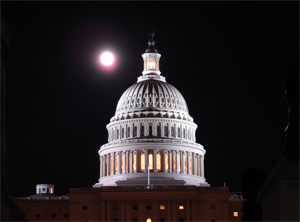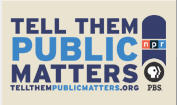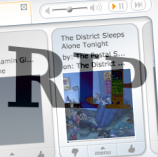When SoundExchange, the organization that represents many labels and artists, proposed steep new royalty rates for radio webcasters last year, they shortsightedly killed off their own revenue stream. Instead of their proposed rates being cut back as part of a standard negotiation, they were surprised to see the U.S. Copyright Royalty Board reject opposing arguments and adopt SoundExchange’s rates fully. Now Pandora, the popular streaming music site, says it’s paying over 70% of its revenue in royalties, and unless Washington changes the rates soon—which looks unlikely— they will have to shut down.
soundexchange

Internet Radio Saved?
Wired’s Listening Post Blog claims that internet radio has been “saved” (for now, anyway) and that SoundExchange executive director Jon Simson “promised — in front of Congress — that SoundExchange will not enforce the new royalty rates. Webcasters will stay online, as new rates are hammered out.”

NPR Asks For Help Against The RIAA
NPR is asking for your help. They’re asking that you take a moment from your day to contact your Congressperson and “Ask them to co-sponsor the Internet Radio Equality Act which was introduced in the House (H.R. 2060) by Representatives Jay Inslee (D-WA) and Donald Manzullo (R-IL) and in the Senate (S.1353) by Senators Ron Wyden (D-OR) and Sam Brownback (R-KS) to save public radio webcasting.”

Proposed Legislation To Save Internet Radio
As you may well know, U.S. Reps. Jay Inslee (D-Wash.) and Don Manzullo (R-Ill.) filed legislation that would reverse a recent decision of the federal Copyright Royalty Board (CRB) to drastically increase the amount internet radio stations have to pay to air their songs. For those of you interested you can read the proposed legislation, here. This is yet another one of those situations where you may want to write a letter expressing your opinion.

RIAA 1, NPR 0: Copyright Royalty Board Denies Motion For Rehearing
Internet broadcasters suffered a blow Monday when the Copyright Royalty Board judges denied a motion for rehearing sponsored by NPR and other broadcasters. The motion denies a rehearing on the grounds that the parties did not offer sufficient new evidence. They also denied a motion to stay the enforcement of the new royalty rate until the appeal process is complete, claiming that if the rate is eventually overturned it can be refunded.

College Radio Feels The Effects Of The RIAA
Internet radio’s low overhead allows for stations to broadcast on a shoestring budget and still access a worldwide audience. For some college stations that only have small transmitters or broadcast in small communities, streaming actually becomes the main source for listeners.


